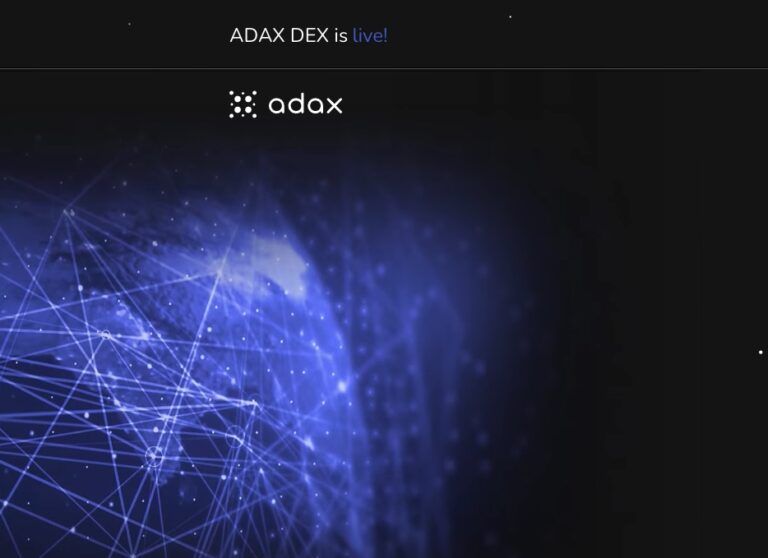On Sunday (January 30), the team behind ADAX, “an automated liquidity protocol that facilitates trades within the Cardano ecosystem in a completely decentralized and non-custodial way”, announced that their DEX had gone live on the mainnet.
On 17 November 2021, an “Ask Me Anything (AMA) event was held on the official ADAX reddit account, where ADAX’s lead developer and the CMO answered questions regarding ADAX’s development and upcoming launch.
According to a recap of this event that was published as a Medium blog post by the ADAX team on November 23, ADAX V1 was “planned to launch in December”.
The ADAX team believe these are the four things that will give them an edge over the competition: “Full decentralisation, team talent, overall UX and partnerships”.
Here is the status report they gave:
“Smart contract is now fully finished and tested. The UI matching engine is finished just being improved in regards to algorithms. Querying/aggregation service is fully finished. PAB/JS wallet integration is in progress and is basically the only thing stopping us from launching, apart from testing.“
Well, earlier today, the ADAX team delivered the Cardano-powered DEX’s many fans some great news:
Currently (as of 22:15 UTC on January 30), the ADAX team are asking users to be patient:
“Cardano network is experience congestion. We have deployed 90 nodes so far to help reduce delays to best of our ability.“
And roughly one hour before this news came out, ADAX and COTI announced a partnership, as the result of which Djed (which is an algorithmic stablecoin for Cardano that is issued by COTI) will be integrated into ADAX’s DEX and EX platforms, which should “enable increased liquidity and Djed’s participation in trading assets through liquidity pools, $ADAX pairs, and more.”
As you may remember, back on 26 September 2021, IO Global (“aka” IOG, formerly known as “IOHK”), the blockchain technology firm behind Cardano’s R&D, published a blog post that talked about the Djed stablecoin, which was unveiled on day two of the two-day Cardano Summit 2021 by IOG and FinTech startup COTI Group (aka “COTI”).
Djed’s use of smart contracts ensures price stabilization. Djed can be useful in decentralized finance (DeFi). It works by “keeping a reserve of base coins, and minting and burning stablecoins and reserve coins.”
Djed’s white paper states that the Djed protocol “behaves like an autonomous bank that buys and sells stablecoins for a price in a range that is pegged to a target price” and that Djed is crypto-backed “in the sense that the bank keeps a volatile cryptocurrency in its reserve.” It also mentions that Djed is “the first stablecoin protocol where stability claims are precisely and mathematically stated and proven.”
In today’s blog post, COTI said that it would be “COTI’s responsibility to publish the smart contracts for the stablecoin as well as engage with funds, enterprises, developers, and others who wish to mint both the stablecoin and the reserve coin used as part of the pegging algorithm.”
The ADAX CMO had this to say:
“The partnership between ADAX and COTI, Djed’s issuer, was long overdue but is very well timed. Having a stable coin introduced for the Cardano ecosystem is a fundamental part of any blockchain. We are delighted to be part of this journey and to have the opportunity to implement DJED on our platforms, both the DEX and the CEX. Our collaboration will potentially go beyond these initial steps and we look forward to what lies ahead.“
COTI’s blog post went on to say that it sees this partnership as “a necessary step in ensuring that Djed is adequately utilized once it is launched, as well as in building a seamless utilization of the stablecoin across the crypto ecosystem.”
Disclaimer
The views and opinions expressed by the author, or any people mentioned in this article, are for informational purposes only, and they do not constitute financial, investment, or other advice. Investing in or trading cryptoassets comes with a risk of financial loss.









